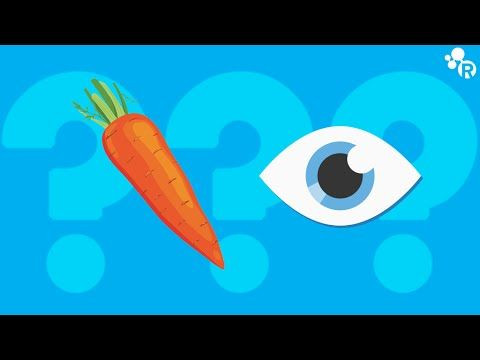Eye Health Fact Or Fiction: Does Vitamin A In Carrots Lead To 20/20 Vision?

At an early age, we were taught mother knows best, and unwillingly listened to her when she would say, “eat your carrots; they help you see better.” While some of us still struggle to chomp down on a carrot, we may begin to wonder if there’s any truth to this saying. In the new video, “Do Carrots Help You See Better?” the American Chemical Society shows how the popular phrase is just a myth and actually traces back to wartime espionage.
The rumor our grandmother and our mom have passed down from generation to generation actually started in World War II when the British Air Force said their pilots ate a lot of carrots to help them see the enemy better at night. In actuality, it wasn’t the carrots; it was their “top-secret” radar system. However, carrots do contain the chemical compound beta-carotene, which can contribute to improved eye health.
"When you eat foods with beta-carotene, your body converts it into vitamin A. And that vitamin A gets turned into retinol,” says chemist Chad Jones, host of the award-winning Collapsed Wave Function podcast, in the video. The retinol can be found in the eyes inside vision cells called “rods.” It sits comfortably wrapped inside a protein that is twisted and compact just like a ball of yarn.
When light hits the retinol it stretches out to a form called cis and then to a form called trans. This chain reaction that leads down to the rod cell, through the nerves, and to the brain lets us know it’s not dark anymore. This is how we are able to see light.
Now, the belief that carrots help improve vision is a stretch, but the beta-carotene is good for our overall eye health. This carotenoid isn’t a match for antioxidants lutein and zeaxanthin, found mostly in leafy greens. These two work together to reverse your visual system losing sensitivity with age by protecting the eye’s macula, Medical Daily previously reported.
The best way to attain good eye health is consuming foods with the highest concentrations of lutein and zeaxanthin, such as spinach and kale. Great sources of vitamin A include carrots, spinach, mangoes, milk, cheese, cantaloupe, and peas. Remember, plenty of vitamin A won’t drastically improve your vision, but it will lead to better eye health.



























